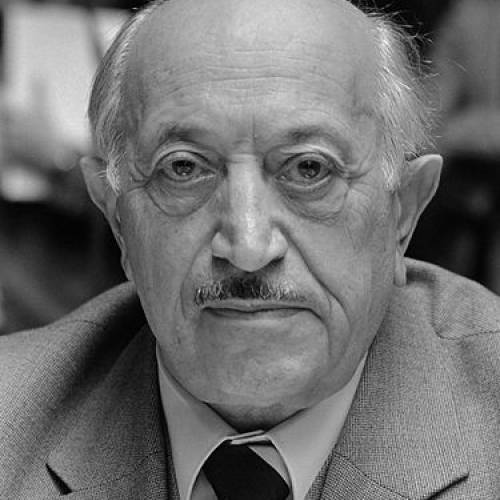 https://heaven.world/en/simon-wiesenthal
https://heaven.world/en/simon-wiesenthal
Firstname
Simon
Lastname
Wiesenthal
Name
Simon Wiesenthal
lived from:
1908-12-31
lived until:
2005-09-20
Simon Wiesenthal was an Austrian Nazi hunter and writer. He was a Jewish Austrian Holocaust survivor who became famous after World War II for his work as a Nazi hunter.
He studied architecture and was living in Lwów at the outbreak of World War II. After being forced to work as a slave labourer in Nazi concentration camps such as Janowska, Plaszow, and Mauthausen during the war, Wiesenthal dedicated most of his life to tracking down and gathering information on fugitive Nazi war criminals so that they could be brought to trial. In 1947 he co-founded the Jewish Historical Documentation Centre in Linz, Austria, where he and others gathered information for future war crime trials and aided refugees in their search for lost relatives. He opened the Jewish Documentation Center in Vienna in 1961 and continued to try to locate missing Nazi war criminals. He played a small role in locating Adolf Eichmann, who was captured in Buenos Aires in 1960, and worked closely with the Austrian justice ministry to prepare a dossier on Franz Stangl, who was sentenced to life imprisonment in 1971.
In the 1970s and 1980s, Wiesenthal was involved in two high-profile events involving Austrian politicians. Shortly after Bruno Kreisky was inaugurated as Austrian chancellor in April 1970, Wiesenthal pointed out to the press that four of his new cabinet appointees had been members of the Nazi Party. Kreisky, angry, called Wiesenthal a "Jewish fascist", likened his organisation to the Mafia, and accused him of collaborating with the Nazis. Wiesenthal successfully sued for libel, the suit ending in 1989. In 1986, Wiesenthal was involved in the case of Kurt Waldheim, whose Nazi past was revealed in the lead-up to the 1986 Austrian presidential elections. Wiesenthal, embarrassed that he had previously cleared Waldheim of any wrongdoing, suffered much negative publicity as a result of this event.
With a reputation as a storyteller, Wiesenthal was the author of several memoirs containing tales that are only loosely based on actual events. In particular, he exaggerated his role in the capture of Eichmann in 1960. Wiesenthal died in his sleep at age 96 in Vienna on 20 September 2005 and was buried in the city of Herzliya in Israel. The Simon Wiesenthal Center, located in Los Angeles, is named in his honor.
Wien (Vienna), Austria
https://en.wikipedia.org/wiki/Simon_Wiesenthal